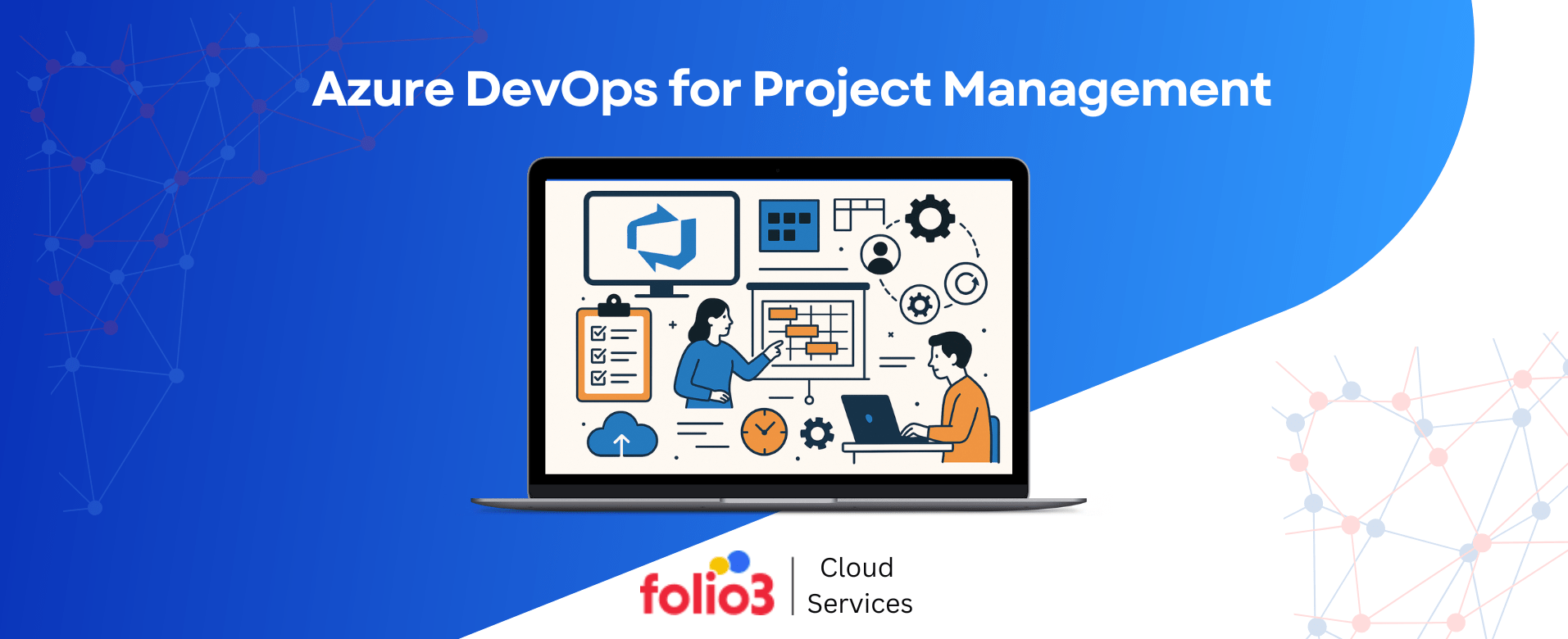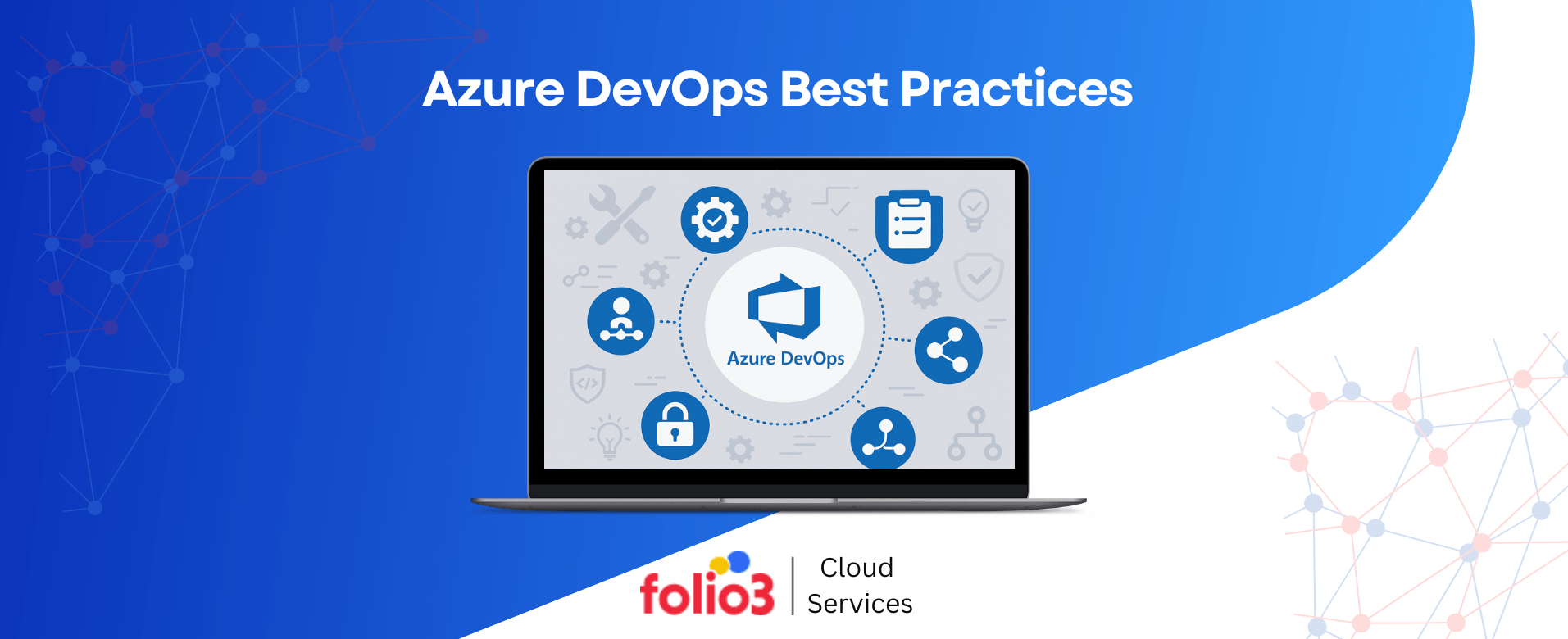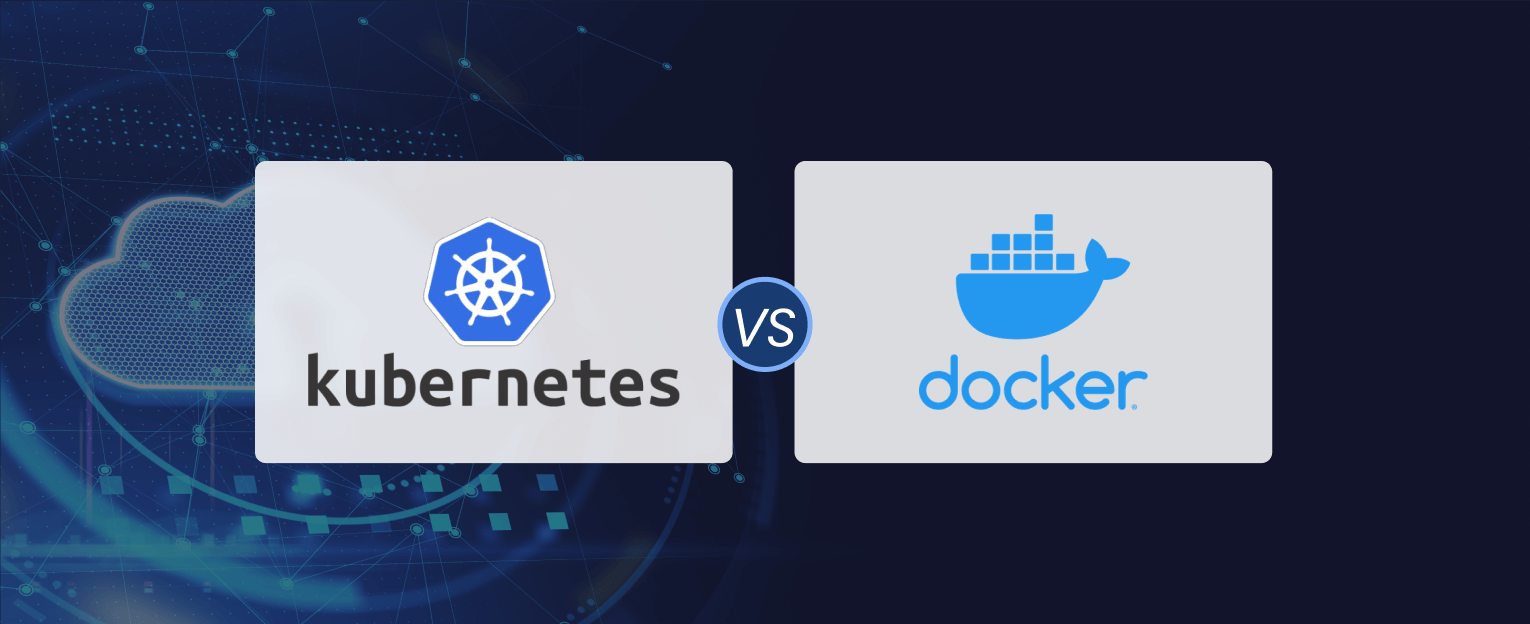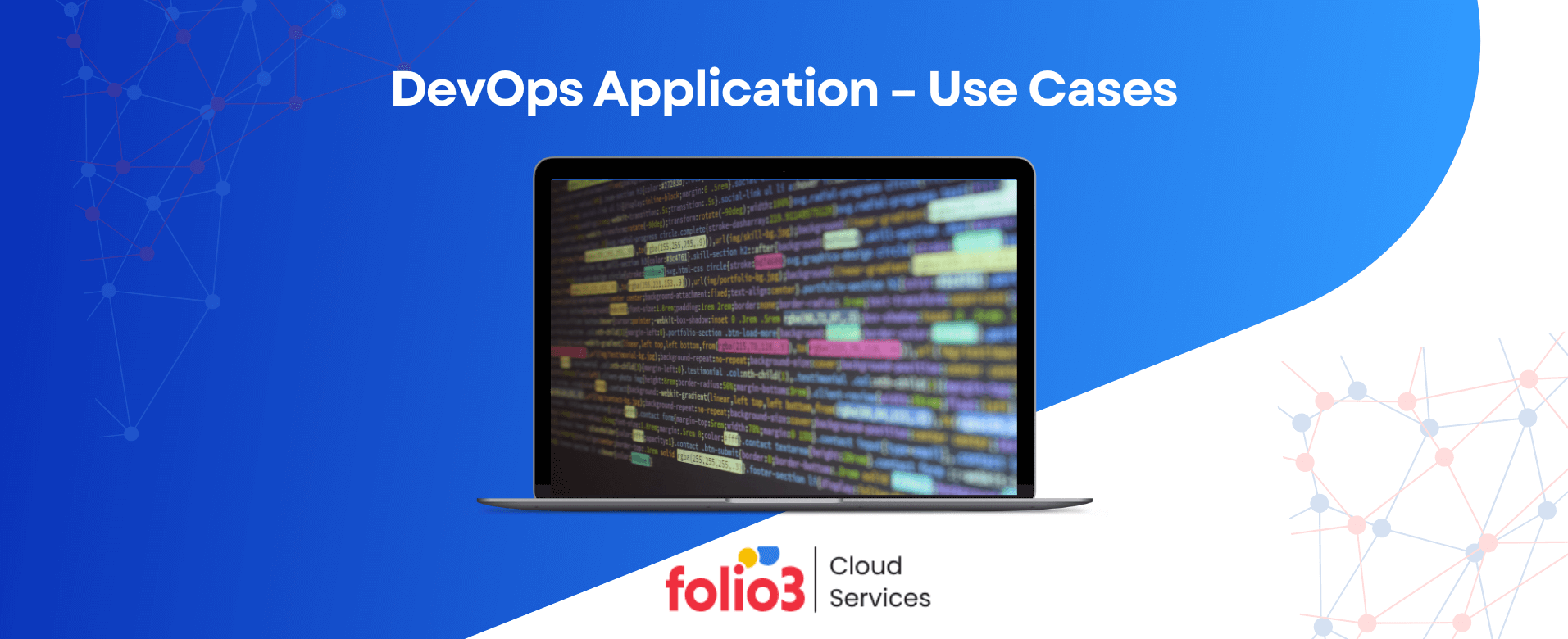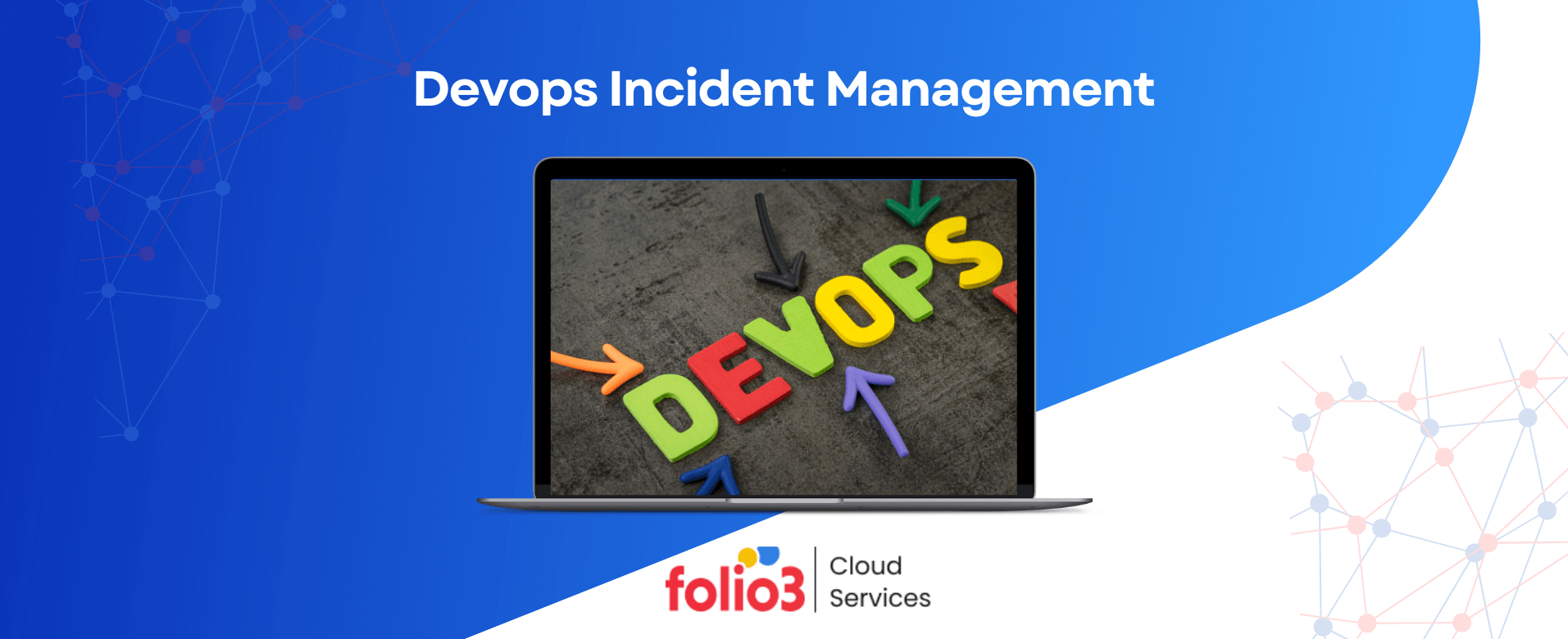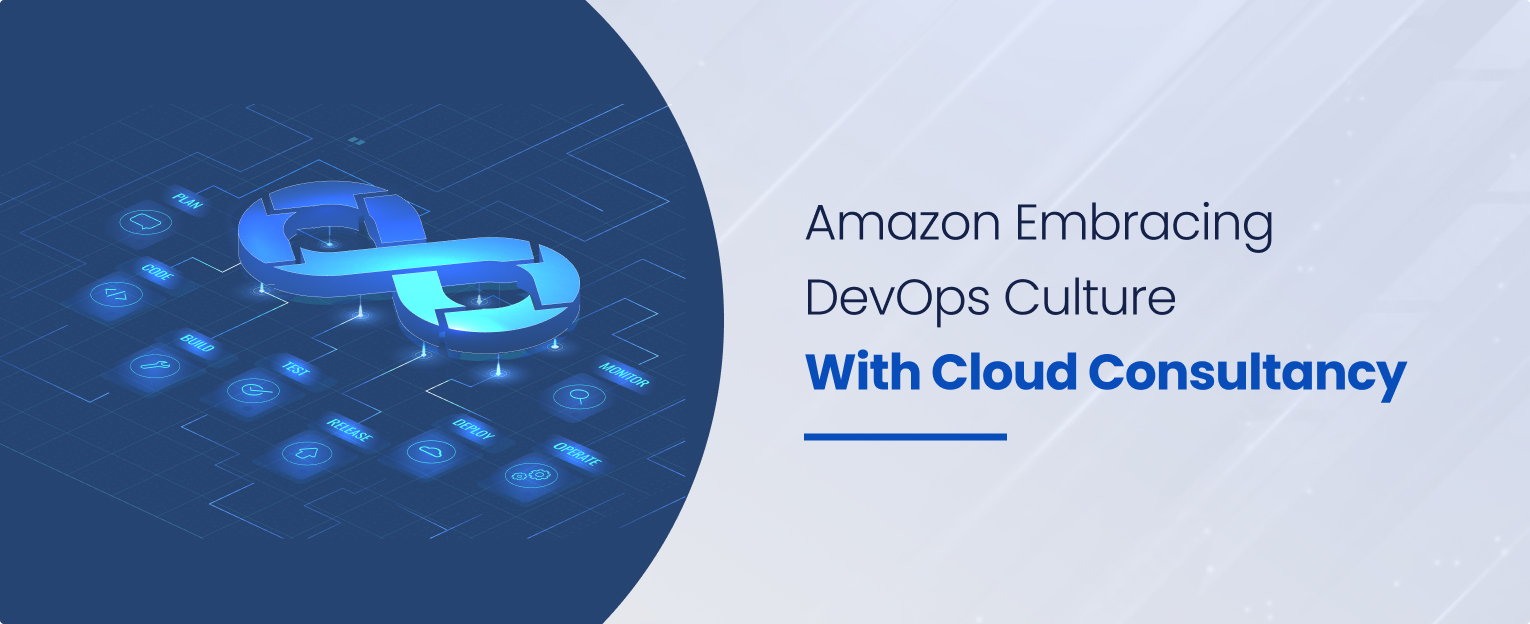DevOps – streamlining the development and operational processes of an organization – is not just a buzzword anymore. It has emerged as a foundation for success and organizations can just not afford to overlook or skip DevOps if they want to remain competitive in today’s business landscape.
DevOps provides numerous benefits, one of which is maximizing the overall operational efficiency of a business. Simply put, with robust DevOps and cloud computing processes in place, a business can do more with fewer resources, which ultimately results in a higher and positive ROI.
Now that we have established the importance of DevOps, for any organization, we will introduce the idea of deploying AWS DevOps services and take advantage of the flexibility and scalability a cloud infrastructure offers.
Imagine supercharging your operational efficiency, because now you’re not only syncing your development and operational efforts, but you’re also making an effort to automate the entire cycle. With DevOps, you build an efficient pipeline but when you deploy that efficient pipeline on AWS, you are also automating it. This could translate to astounding benefits for an organization.
In this article, we’ll explore the true potential of DevOps on AWS and how it can elevate your operational efficiency to new heights.

Understanding Operational Efficiency & Key Components and Challenges
Definition of operational efficiency
Operational efficiency, in essence, is the art of optimizing every aspect of your business to achieve maximum output with minimal input. It’s about doing things the smarter way, and not the harder way, by eliminating inefficiencies, reducing waste, and fine-tuning processes.
Key components of operational efficiency include:
- Streamlined Processes: This involves identifying bottlenecks and unnecessary steps in your workflows and removing them. Streamlining routine processes ensures that tasks are completed with fewer resources and in less time.
- Resource Allocation: Efficient resource allocation involves using your time, money, and personnel wisely. It’s about assigning the right people to the right tasks and investing resources where they’ll have the most significant impact.
- Automation: DevOps automation is a game-changer for efficiency. Tasks that are repetitive and rule-based can be automated, which in turn, reduces the risk of errors and frees up important resources for more strategic tasks.
- Continuous Improvement: Achieving operational efficiency with AWS consulting services for DevOps is not a one-time effort; it is a continuous journey. Businesses must regularly assess and fine-tune their operations, leveraging AWS and DevOps practices, to adapt to changing circumstances and evolving customer demands for continuous improvement.
DevOps Benefits & Advantages for Operational Efficiency
A business should always and continuously aim to maximize its operational efficiency, and by doing so, it can truly transform the way they do business.
Here are some of the benefits they can get as a result:
1. Improved Performance:
- Quicker Response Times: Efficient operations allow a business to respond rapidly to customer needs and market fluctuations. This agility is particularly valuable in industries with dynamic customer demands or rapidly evolving technologies. Businesses can adjust production schedules, allocate resources, and make decisions more swiftly, meeting customer expectations and staying ahead of competitors.
2. Cost Savings:
- Resource Optimization: Operational efficiency is all about using resources effectively. Whether it’s human resources, materials, or equipment, businesses that optimize their use of resources can reduce waste and lower costs. For example, reducing excess inventory can free up capital and reduce storage costs.
- Energy Efficiency: Efficient operations often involve minimizing energy consumption through better equipment utilization, optimized transportation routes, and improved facility design. Lower energy costs contribute to overall cost savings.
- Overhead Reduction: Streamlined processes can lead to reduced administrative and operational overhead. This includes savings in areas such as maintenance, utilities, and office space, all of which contribute to improved profitability.
3. Enhanced Agility:
- Quick Adaptation to Market Changes: An efficiently operating business can more easily adapt to changing market conditions, such as shifts in consumer preferences, economic downturns, or emerging trends with enhanced AWS consulting services for DevOps. This adaptability is essential for long-term survival and growth.
- Seizing New Opportunities: Efficient businesses are better positioned to identify and capitalize on new opportunities. Whether it’s entering a new market, launching a new product, or pursuing a strategic partnership, operational agility allows for quicker decision-making and implementation.
- Staying Competitive: In highly competitive markets, businesses that can pivot and respond rapidly to AWS DevOps challenges and opportunities are more likely to maintain or gain market share. Operational efficiency provides the foundation for this competitive advantage.
Operational efficiency is not just a cost-cutting exercise; it’s a strategy that can transform the way a business operates. It results in improved performance, cost savings, and enhanced agility, positioning the business for sustainable growth and success in a dynamic and competitive business environment
Common Challenges in Maximizing Business Efficiency
It is common for businesses to embark on a transformation journey, to maximize their operational efficiency by restructuring their existing processes and introducing AWS DevOps practices, cloud platforms, AWS tools for automation etc. But without a proper strategy and direction in place, teams never make it past the finish line, which not only causes frustration but costs a business valuable time and money.
This is why, businesses often look for resources and experts outside of their organization to help them navigate the transformative, but somewhat tricky, path of deploying DevOps practices on AWS.
It is important for organizations to be aware of the challenges and roadblocks so that they can navigate them successfully and bring their efforts to fruition. Here are some challenges that businesses face:
- Resistance to Change: Employees and management might resist changes to established processes. Open communication of milestones and goals across the organization and across the stakeholders is essential to overcome this hurdle. Your team should be able to see your vision and also believe in it.
- Lack of Data and Visibility: One of the main challenges that organizations face is that data is stored in silos and is not cleaned. Without access to accurate data and insights, it’s challenging to identify inefficiencies and areas for improvement.
- Complexity: Some businesses are so complex that achieving efficiency becomes a daunting task. Simplifying processes, focusing on the most critical areas first and then taking on incremental tasks to optimize processes is the key in such a scenario.
- Resource Constraints: Smaller businesses might lack the resources for large-scale automation or process optimization initiatives.
In the next section of our article, we’ll explore how DevOps, when deployed on AWS, addresses these challenges and can supercharge the operational efficiency of any organization.
Understanding DevOps and Its Principles
DevOps is a cultural and technical approach that brings together development (Dev) and operations (Ops) teams to streamline the software delivery process. Before discussing how DevOps on AWS can enhance an organization’s operational efficiency, let us first understand the key principles of DevOps:
- Collaboration: DevOps fosters collaboration and communication between traditionally siloed development and operations teams. This collaboration ensures that everyone is aligned towards common goals, which in turn leads to faster and more reliable software delivery.
- Automation: Automation is at the heart of DevOps. It involves automating manual and repetitive tasks, such as code deployment, testing, and infrastructure provisioning. Automation not only speeds up processes but also reduces the risk of human error and makes the overall workflow pipeline more efficient.
- Continuous Integration and Continuous Deployment (CI/CD): CI/CD is an important component of DevOps. CI/CD pipelines automate the building, testing, and deployment of code changes. This allows for rapid and frequent releases, which enhances agility and reduces time to market.
- Monitoring and Feedback: DevOps emphasizes real-time monitoring of applications and infrastructure. This feedback loop enables teams to identify issues early and make data-driven decisions for improvement.
DevOps and Cloud Computing
DevOps and cloud computing, especially platforms like AWS, are a natural fit. AWS provides the scalable and flexible infrastructure needed for DevOps practices to thrive. Therefore, DevOps on AWS offers several advantages for businesses.
Let us discuss why should you consider moving your DevOps practices to AWS as well:
- Elasticity: AWS allows for the dynamic allocation of resources, which enables teams to scale infrastructure up or down as needed. This aligns with DevOps principles of flexibility and resource optimization.
- Automation Tools: AWS provides a rich ecosystem of automation tools, such as AWS CloudFormation and AWS Elastic Beanstalk, which integrate seamlessly with DevOps pipelines, and supports automated provisioning and deployment.
- Faster Software Delivery and Continuous Deployment: DevOps on AWS enables rapid and continuous software delivery, reducing release cycles from months to days or even hours. This gives you a substantial edge in today’s competitive business landscape.
- Enhanced Reliability, Scalability, and Security: DevOps practices on AWS enhance system reliability through automated testing and deployment, while AWS’s security features help fortify applications and infrastructure.
- Real-time Monitoring and Faster Issue Resolution: AWS offers robust monitoring and analytics tools, enabling teams to detect issues in real-time and resolve them swiftly, minimizing downtime and user disruption.
- Cost Optimization: Through resource management and automation, businesses can optimize their AWS infrastructure, increasing and decreasing the resource allocation as needed. This not only reduces operational costs for a business so that they’re only paying for what they use but also helps them scale quickly and maximise ROI.
To summarize, DevOps on AWS is a powerful combination that enables businesses to accelerate their software delivery, improve collaboration, enhance reliability, and optimize costs. When implemented correctly, it’s a game-changer for businesses.
DevOps Professional Services
DevOps Professional Services refer to specialized teams or consultants who are experts in implementing DevOps practices within an organization, particularly on cloud platforms like AWS. These professionals offer invaluable guidance and hands-on support to help businesses maximize the benefits of DevOps.
Importance of expert guidance for implementing DevOps on AWS
Implementing DevOps on AWS can be complex, especially for businesses new to these practices. Here’s why expert guidance is essential:
- Specialized Knowledge: DevOps professionals possess deep expertise in both DevOps principles and AWS services. They understand how to tailor solutions to specific business needs, ensuring a smooth implementation.
- Efficiency: Experts can expedite the adoption of DevOps practices, reducing the learning curve and accelerating time-to-value. This efficiency is critical for businesses aiming to reap the benefits of DevOps swiftly.
- Risk Mitigation: Professionals are well-versed in identifying and mitigating risks associated with DevOps implementation. They can anticipate potential challenges and implement solutions proactively.
Services offered by DevOps professionals:
- Assessment and Strategy Development: DevOps professionals conduct assessments of existing processes and create tailored DevOps strategies aligned with business objectives.
- Infrastructure as Code (IaC) Implementation: They help implement IaC practices, enabling the automated provisioning and management of AWS infrastructure, enhancing scalability and repeatability.
- Continuous Integration (CI) and Continuous Deployment (CD) Setup: Experts configure CI/CD pipelines, automating the build, test, and deployment processes, ensuring rapid and reliable software releases.
- Automated Testing and Quality Assurance: DevOps professionals integrate automated testing frameworks to ensure code quality and reduce the risk of defects in production.
- Monitoring and Performance Optimization: They set up robust monitoring and alerting systems to track AWS infrastructure and application performance, optimizing resources for cost efficiency.
- Security and Compliance Integration: Experts embed security and compliance checks into the CI/CD pipeline, ensuring that applications and infrastructure meet industry standards and security best practices.
- Training and Team Upskilling: DevOps professionals provide training and mentorship to in-house teams, empowering them with the skills needed to sustain and evolve DevOps practices.
- DevOps Outsourcing: DevOps is a process that can be outsourced to external entities if you don’t have the right talent. Learn more about how to outsource your DevOps processes in detail here.
Selecting the Right DevOps Professional Services Partner
Choosing the right DevOps service provider is a crucial decision that can significantly impact the success of your DevOps initiatives. Here are some factors to consider when selecting the right DevOps service provider:
- Expertise in AWS and DevOps Practices: Ensure that your chosen service provider has a deep understanding of both AWS (Amazon Web Services) and DevOps practices. DevOps relies heavily on cloud infrastructure, and AWS is a popular choice. A service provider with expertise in AWS can help you leverage cloud resources effectively and securely in your DevOps pipelines.
- Track Record of Successful Implementations: Look for a partner with a proven track record of successful DevOps implementations. Ask for case studies and references to gauge their past performance. A history of successful projects indicates that the service provider has the skills and experience necessary to help your organization achieve its DevOps goals.
- Customizability of Services to Business Needs: Every organization is unique, and your DevOps needs may differ from others. A reliable service provider should offer customizable solutions tailored to your specific business requirements. Avoid one-size-fits-all approaches, and work with a partner who can adapt their services to fit your organization’s goals and constraints.
- Cultural Alignment and Collaboration: Collaboration and cultural alignment are critical for successful DevOps implementations. Your service provider should be able to seamlessly integrate with your existing teams and processes. Assess their willingness to work collaboratively and their ability to understand and respect your organization’s culture.
- Support and Post-Implementation Services: The journey to DevOps excellence doesn’t end with implementation. Post-implementation support is crucial for maintaining and optimizing your DevOps practices. Ensure that your service provider offers ongoing support, monitoring, and maintenance services to help you address issues, implement improvements, and stay up-to-date with evolving technologies and best practices.
Selecting the right DevOps professional services partner is a strategic decision that can significantly impact your organization’s ability to innovate and deliver software efficiently. Take the time to thoroughly evaluate potential partners based on the factors mentioned above.
Conclusion
In conclusion, expert guidance from DevOps professionals is a strategic investment for businesses looking to deploy DevOps services and practices on AWS. It not only accelerates implementation but also ensures that the transition is efficient, secure, and aligned with organizational goals, ultimately leading to greater operational efficiency and business success. To achieve maximum efficiency, AWS DevOps service teams need to:
Prepare business for DevOps transformation
Preparing your business for DevOps transformation is the essential first step. It involves assessing your current state, defining clear objectives, securing executive buy-in, and investing in skills development to ensure your team is well-equipped for the journey ahead.
Identify Specific Needs
Initiating collaboration with an AWS DevOps service provider involves identifying specific needs, meticulously selecting a vendor, defining an engagement model, and collaboratively planning the DevOps roadmap. This collaborative approach ensures alignment and clear expectations between both parties.
Address Potential Challenges
Throughout the implementation phase, it’s crucial to anticipate and address potential challenges. Overcoming cultural resistance, integrating complex toolchains, maintaining security and compliance, and ensuring scalability are all key considerations to navigate successfully.
Evolution of Best Practices
Finally, the journey to DevOps excellence doesn’t end with implementation. The commitment to continuous improvement and evolution of DevOps practices is paramount. Establishing feedback loops, monitoring and measuring performance metrics, automating processes, and fostering a culture of learning are essential to staying competitive and innovative in the dynamic world of technology.
Incorporating these steps and considerations, your organization can harness the full potential of DevOps on AWS, enabling increased efficiency, scalability, and agility while maintaining the highest standards of quality and security. DevOps is not just a methodology; it’s a philosophy of continuous improvement and collaboration that empowers businesses to thrive in the digital age.



